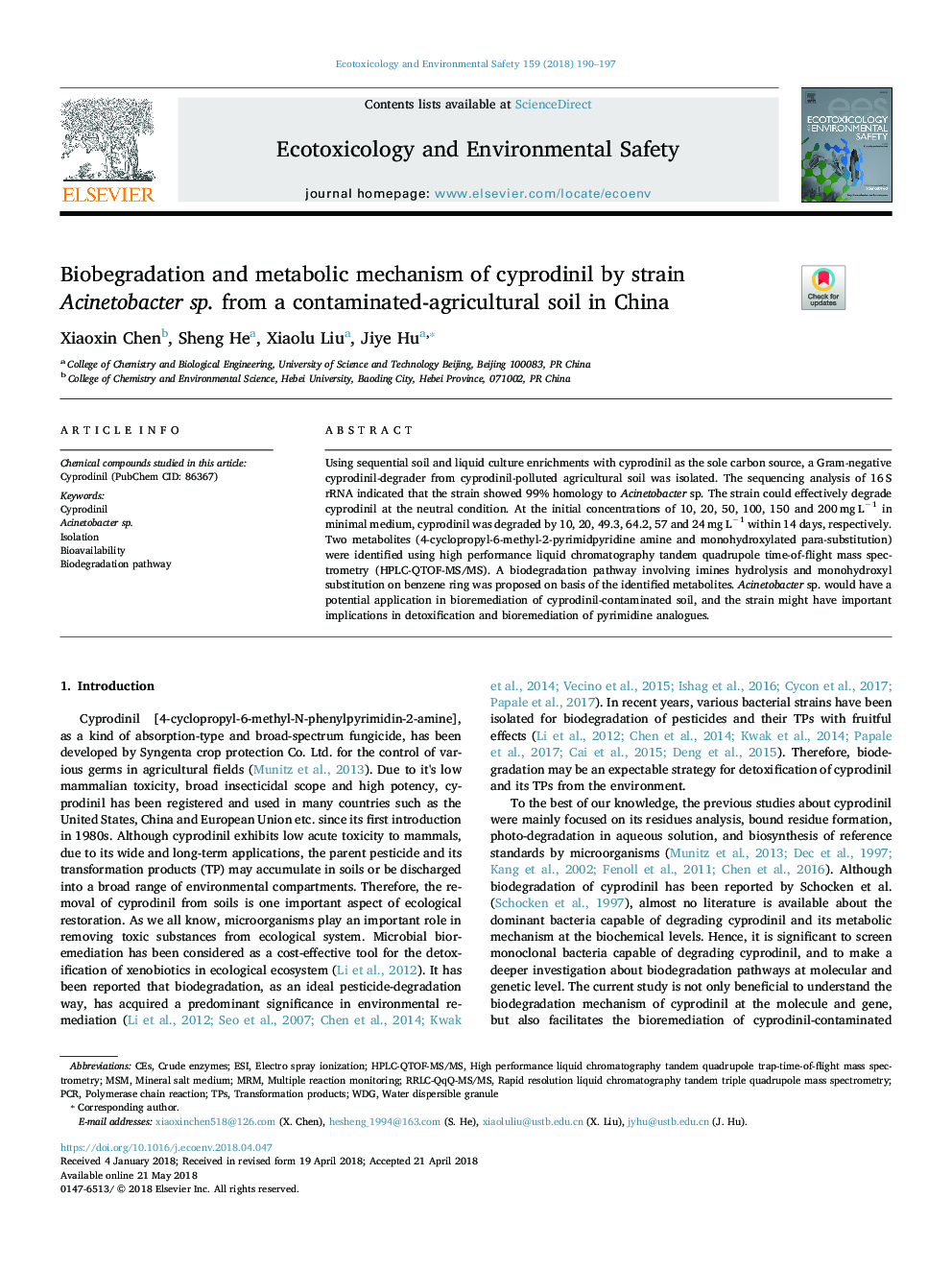| Article ID | Journal | Published Year | Pages | File Type |
|---|---|---|---|---|
| 8853663 | Ecotoxicology and Environmental Safety | 2018 | 8 Pages |
Abstract
Using sequential soil and liquid culture enrichments with cyprodinil as the sole carbon source, a Gram-negative cyprodinil-degrader from cyprodinil-polluted agricultural soil was isolated. The sequencing analysis of 16â¯S rRNA indicated that the strain showed 99% homology to Acinetobacter sp. The strain could effectively degrade cyprodinil at the neutral condition. At the initial concentrations of 10, 20, 50, 100, 150 and 200â¯mgâ¯Lâ1 in minimal medium, cyprodinil was degraded by 10, 20, 49.3, 64.2, 57 and 24â¯mgâ¯Lâ1 within 14 days, respectively. Two metabolites (4-cyclopropyl-6-methyl-2-pyrimidpyridine amine and monohydroxylated para-substitution) were identified using high performance liquid chromatography tandem quadrupole time-of-flight mass spectrometry (HPLC-QTOF-MS/MS). A biodegradation pathway involving imines hydrolysis and monohydroxyl substitution on benzene ring was proposed on basis of the identified metabolites. Acinetobacter sp. would have a potential application in bioremediation of cyprodinil-contaminated soil, and the strain might have important implications in detoxification and bioremediation of pyrimidine analogues.
Keywords
Related Topics
Life Sciences
Environmental Science
Environmental Chemistry
Authors
Xiaoxin Chen, Sheng He, Xiaolu Liu, Jiye Hu,
